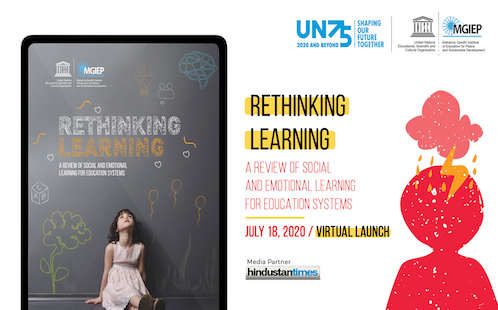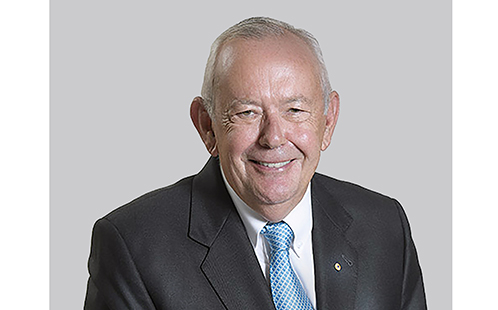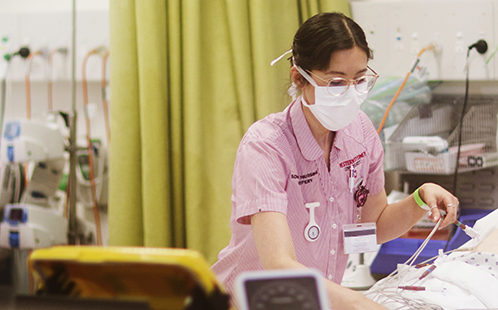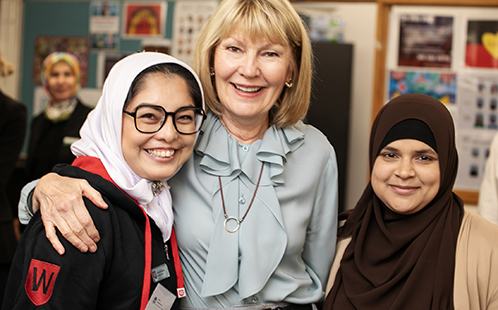Western researchers contribute to UNESCO review of social and emotional learning

On world Nelson Mandela Day, UNESCO Mahatma Gandhi Institute of Education for Peace and Sustainable Development (MGIEP), with contributions from Western Sydney University researchers, presents an extensive, peer-reviewed guide on Social and Emotional Learning (SEL), titled: Rethinking Learning: A Review of Social and Emotional Learning for Education Systems.
This publication examines the latest research on SEL, its impact on student health and school climate, and its transformative role in building happier classrooms. It seeks to inform and impress upon Member States the urgent need to mainstream social and emotional learning in education systems.
Dr Brenda Dobia from the University’s School of Education, who is the lead author of the chapter, Implementation of Social and Emotional Learning, explains while SEL can have many benefits for psychosocial development and well-being, the extent to which the benefits are realised depends largely on implementation.
“When implemented effectively, Social Emotional Learning can provide support for children’s ongoing social and emotional development. It requires careful planning and sequencing of active, focused and explicit teaching and learning activities,” said Dr Dobia.
However, Dr Dobia’s research shows there are benefits but also shortcomings with an individualistic skills focus, particularly when dealing with issues of culture and equity.
“Rather, we need to make human rights central to Social Emotional Learning by focusing on contexts and pedagogies for cultivating shared humanity. A shared humanity focus requires collective learning of social-emotional skills that foster respect, inclusion, agency and social justice,” said Dr Dobia.
The chapter calls for systemic and sustained implementation of SEL through the development of consistent policy settings, curriculum standards and effective implementation support, including expert guidance for schools. And emphasises the need to adapt programs of learning to meet the social and cultural needs of individual school communities.
Co-authors of the chapter include Dr Leonie Arthur, School of Education at Western Sydney University; Professor Patricia Jennings, University of Virginia; Dr Dion Khlentzos, Excelsia College; Dr Roberto Parada, School of Education at Western Sydney University; Adjunct Associate Professor Dr Sue Roffey, School of Education at Western Sydney University; and Dr Nimrod Sheinman, Center for Mindfulness in Education.
The Rethinking Learning report was released today during a virtual panel discussion with seven children from India, Afghanistan, Bangladesh, South Africa and Japan. The discussion was moderated by Dr Nandini Chatterjee Singh, Cognitive Neuroscientist and Senior Program Officer, UNESCO MGIEP.
Speaking on the occasion of the launch, Dr Duraiappah expressed “mainstreaming SEL into education can contribute to achieving the Sustainable Development Goal (SDG) 4 by allowing all learners to be better prepared to learn (SDG Target 4.1-4.6) and to help develop empathy, compassion and a sense of solidarity with humanity (Target 4.7).”
A key finding from the report calls upon the Member States of the United Nations (UN) to increase their education budgets to include training for teachers in SEL and the overall education system. Preliminary results show an impressive return on investment (ROI) of about 7 to 10. Furthermore, preliminary results from the report show that the productivity lost for not spending on SEL interventions is about 29% of Gross National Income. These are indeed large numbers that need further exploration and studies but offer some strong opportunities for further improving economies and societies at large. It is also important that policymakers take a strengths-based approach to SEL assessment and monitoring one in which students’ social and emotional strengths and capacities are at the fore and to not adopt standardised student learning assessments. This will pave the way for the promotion of students’ positive development and will help prevent problems.
The Institute also announced the launch of The Global Collective on SEL and Digital Learning with four Governments and over 16 SEL based organisations to support the integration of SEL and the use of digital learning to scale up the process of mainstreaming SEL in education systems. The Collective was formally launched by the Honourable Minister of Education of the Maldives Dr Aishath Ali and the Honourable Minister of Education, Sports and Youth Affairs of Sri Lanka Mr Dullas Alahapperuma.
For more information, download the full review, available via the MGIEP website (opens in a new window).
ENDS
18 July 2020
Latest News

Western Sydney University receives transformational donation to support LGBTIQA+ community
Western Sydney University has welcomed a philanthropic donation from The Brennan Lynch Foundation.

Western Sydney University ranks among world’s best for 23 subjects
The University has been named as one of the world’s top universities for the study of 23 subjects in the latest edition of the QS World University Rankings by Subject, including being ranked in the top 50 for Nursing.

Western Sydney University receives landmark $7.9 million philanthropic gift from Harvey Norman to launch leadership academy, empowering young women in Western Sydney
Western has welcomed a landmark donation to establish the Harvey Norman® Young Women’s Leadership Academy Led by Katie Page.
Mobile options:

